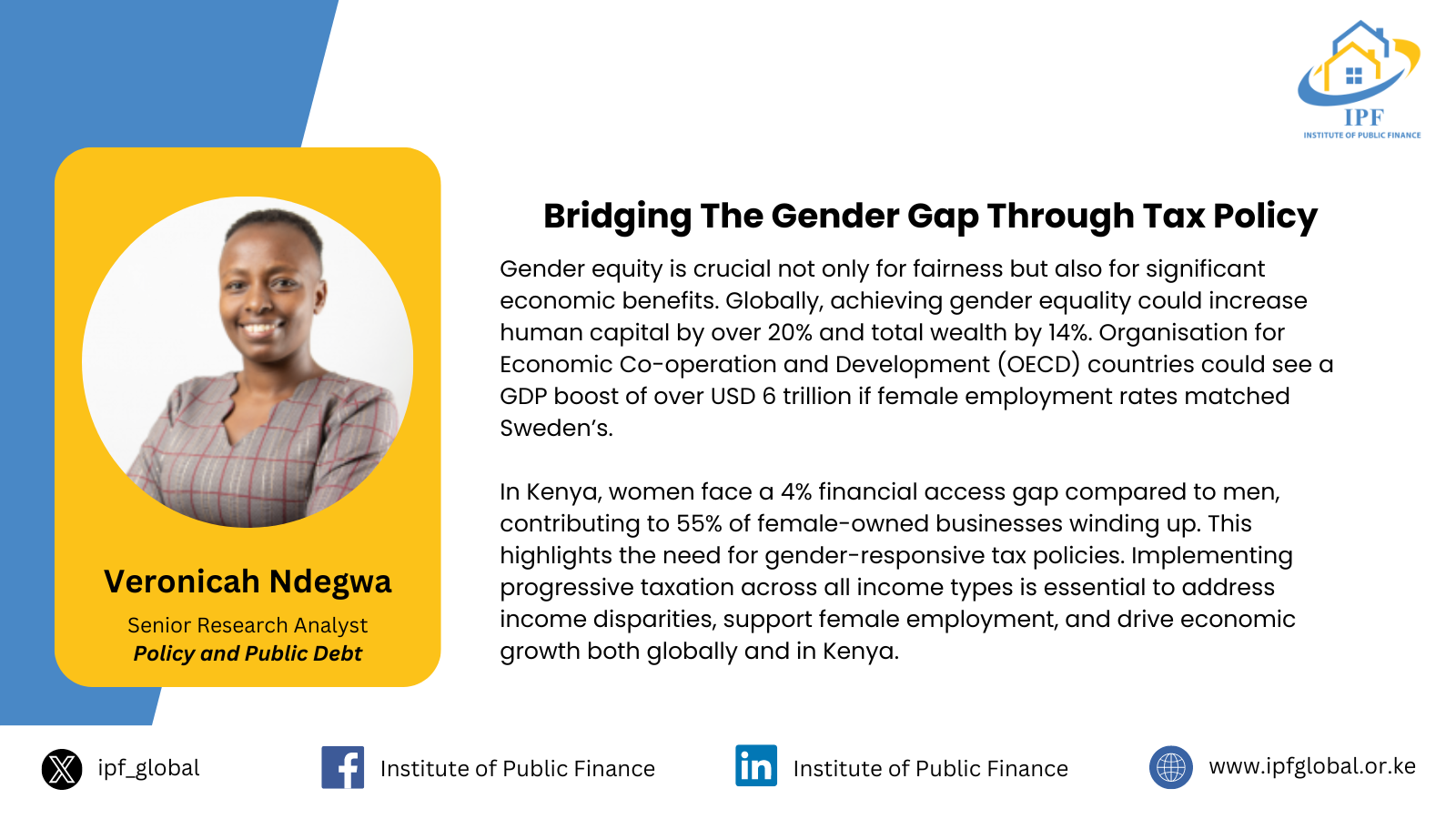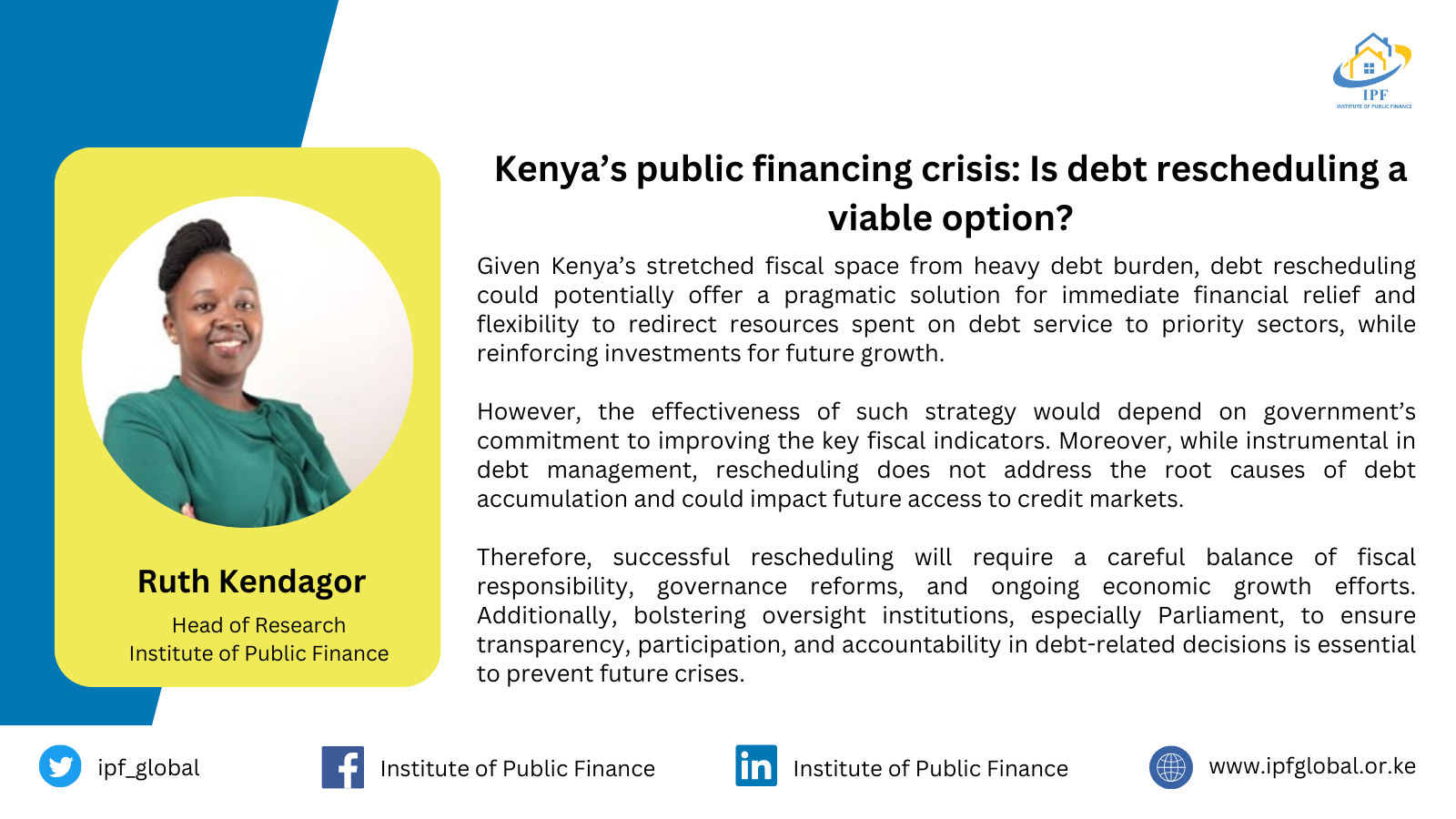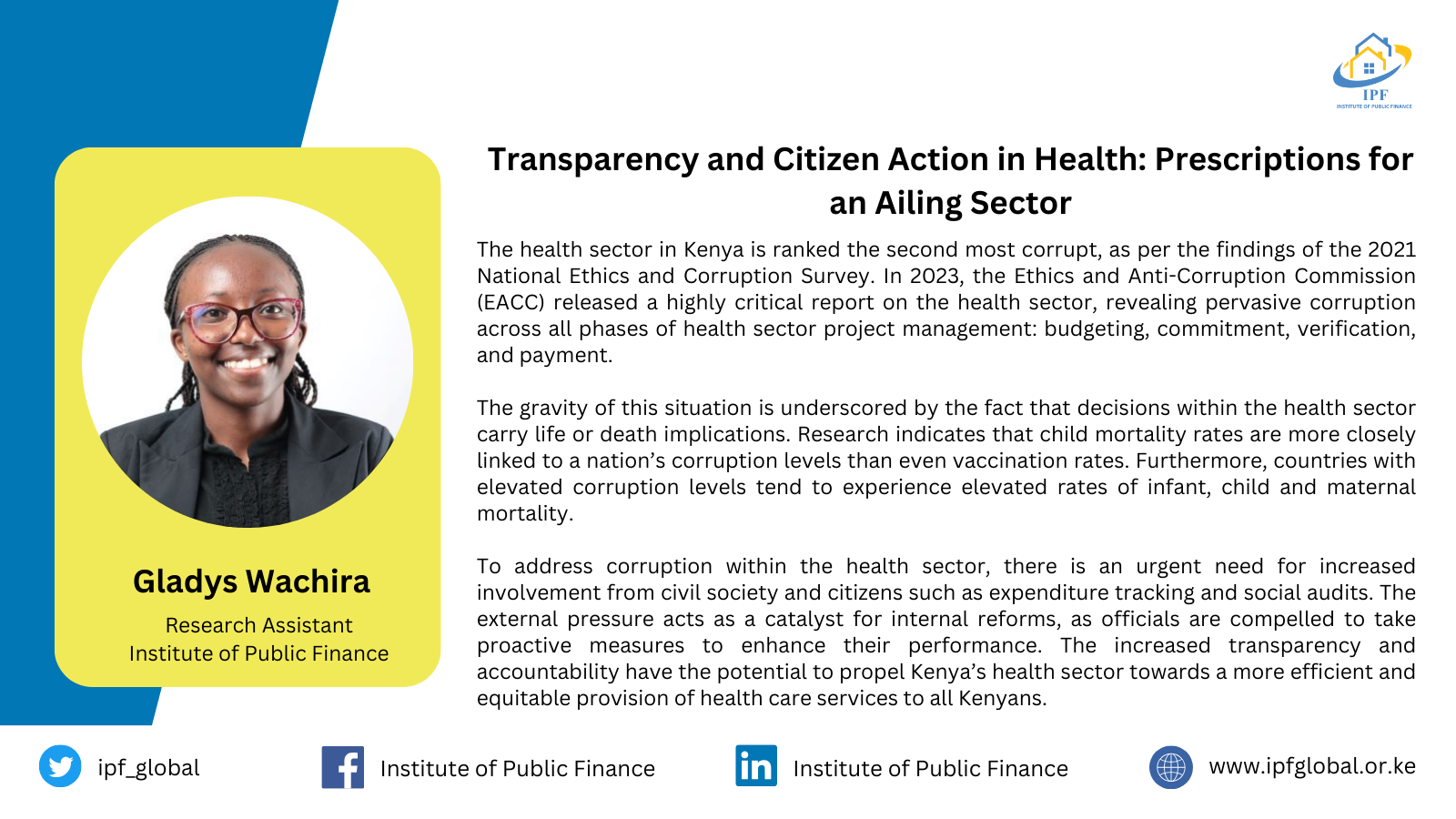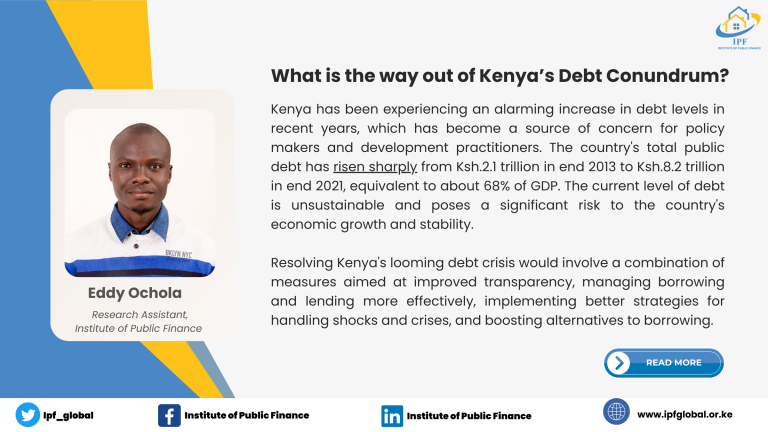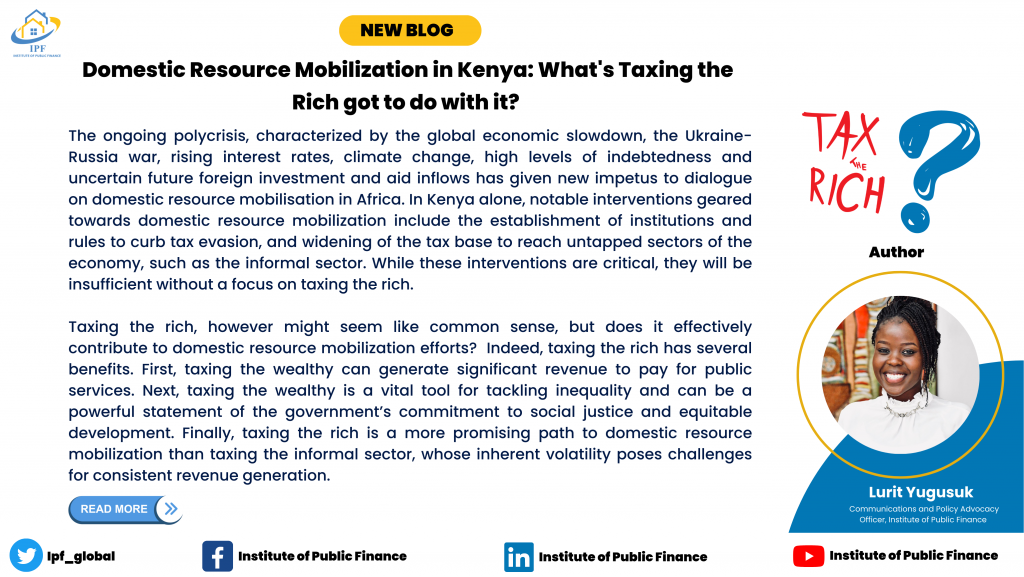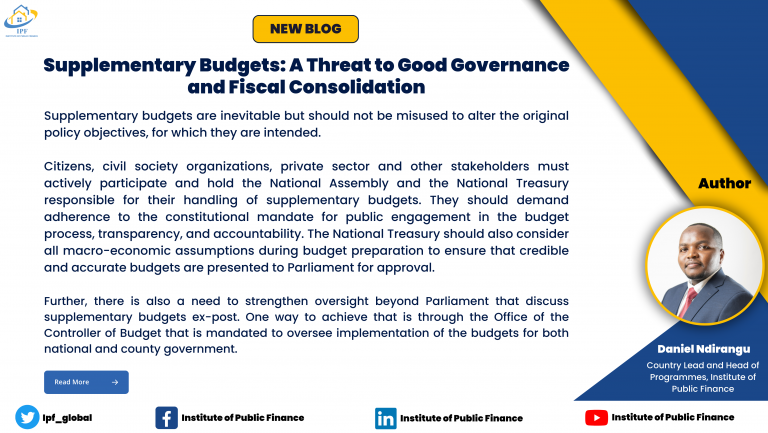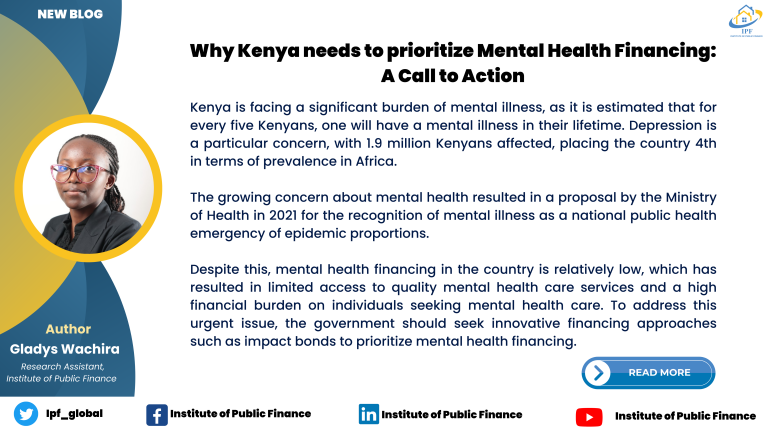Why are we focusing on this area?
Health is a top government priority. Kenya approved a national universal health coverage (UHC) policy in 2020. The policy is based on four objectives, among them reducing financial barriers to healthcare. However, the level of government resources allocated to health has not yet resulted in significant progress toward UHC, such as a significant reduction in out-of-pocket payments. Several
factors explain this, but limited resources and insurance coverage are among the most important.
Health insurance coverage remains very low; according to the Kenya Demographic
and Health Survey (KDHS) 2022, one in four Kenyans, has some form of health insurance with the National Hospital Insurance Fund (NHIF) providing over 90% coverage. And domestic government financing for health has remained stagnant at 2% of GDP and 8% of general government expenditure for a decade. This falls below the WHO threshold of at least 5% government health expenditure as a share of GDP required to achieve Universal Health Coverage (UHC), as well as the Abuja declaration of government health spending of at least 15% of general government expenditure.
In October 2023, new laws were passed to address healthcare financing. The Social Health Insurance Act repealed the National Health Insurance Fund Act and established three new funds. These funds are meant to ensure citizens’
access to healthcare at facilities. Additionally, the Facility Improvement Financing Act aims to address the underfunding of public health facilities. Implementing these laws will require analysis and advocacy from outside of
government. What aspects of Health Financing are we focusing on?
Our focus in health financing is on mechanisms to expand the pool of resources available for insurance and service delivery. Our research
will examine existing health financing schemes, both public and private, to explore answers to the following questions:
• What are the key barriers to increasing domestic government financing for health
in Kenya?
• How can existing health financing policies and programs be strengthened to improve sustainability, efficiency, and equity?
To promote effective, efficient, and equitable utilization of available resources, our strategy involves conducting budget and expenditure analysis at the national and sub-national levels, including budget allocation, utilization, and
efficiency.
Our research will also look at opportunities for resource mobilization, cost containment, and strategic investments in priority areas such
as primary healthcare, disease prevention, and
health infrastructure.



